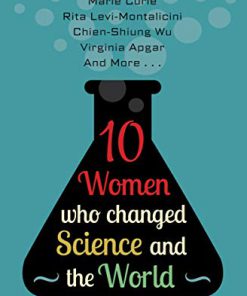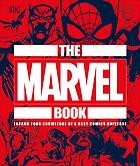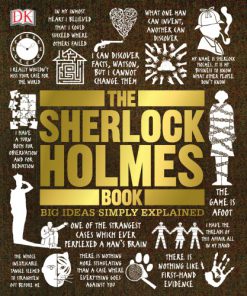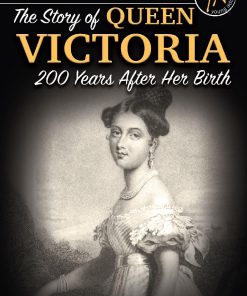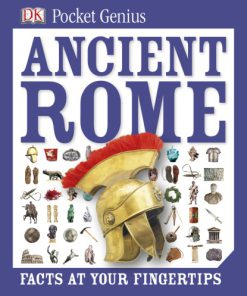Scientists Who Changed History 1st Edition by Dk ISBN 0241363411 9780241363416
$50.00 Original price was: $50.00.$25.00Current price is: $25.00.
Scientists Who Changed History 1st Edition by Dk – Ebook PDF Instant Download/Delivery: 0241363411, 978- 0241363416
Full download Scientists Who Changed History 1st Edition after payment
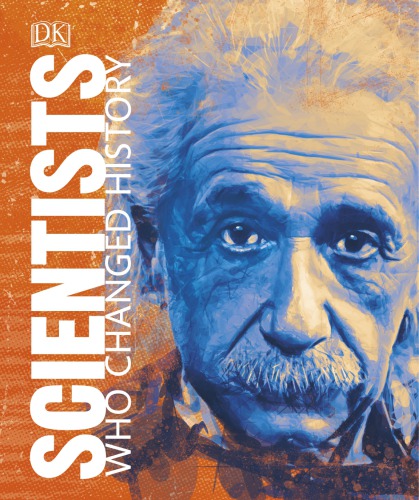
Product details:
ISBN 10: 0241363411
ISBN 13: 978-0241363416
Author: Dk
Explore the lives and achievements of more than 85 of the world’s most inspirational and influential scientists with this innovative and boldly graphic biography-led book.
The second title in DK’s new illustrated biography series, Scientists Who Changed History profiles trailblazing individuals from Greek mathematicians, such as Archimedes and Hipparchus, through physicists of the early 20th-century, such as Marie Curie and Albert Einstein, to modern greats such as Stephen Hawking and Tim Berners-Lee.
Each featured individual has made a major contribution to one or more scientific fields, from astronomy, biology, and psychology, to computer science and geology.
Combining elements of biography, history, and analysis, Scientists Who Changed History explains the groundbreaking contributions made by these revolutionary men and women in a clear and informative way.
Scientists Who Changed History 1st Table of contents:
1. The Dawn of Science (650 BCE – 1450 CE)
- Thales: Often considered the first philosopher and scientist, he proposed that water was the primary substance of the universe.
- Aristotle: A foundational figure in natural science, contributing to many fields including biology, physics, and logic.
- Archimedes: Known for his work in geometry, hydrostatics, and the development of the Archimedean screw.
- Zhang Heng: An inventor, astronomer, and mathematician in ancient China, known for inventing the seismoscope.
- Galen: A Greek physician whose work laid the foundations for medical science for centuries.
- Hypatia: A philosopher and mathematician in Alexandria, known for her work on the philosophy of mathematics and astronomy.
- Al-Khwarizmi: A Persian mathematician who is considered the father of algebra.
- Alhazen (Ibn al-Haytham): A pioneer in optics and experimental science, often referred to as the “father of optics.”
- Hildegard of Bingen: A polymath who contributed to natural history, medicine, and music.
2. Scientific Revolution (1450-1650)
- Leonardo da Vinci: Renowned for his art and numerous scientific studies in anatomy, hydraulics, and aerodynamics.
- Nicolaus Copernicus: Developed the heliocentric model of the solar system, changing the way we perceive the universe.
- Galileo Galilei: Known for his improvements to the telescope and support for the Copernican heliocentric model.
- Johannes Kepler: Formulated the laws of planetary motion, explaining how planets orbit the Sun.
- William Harvey: Discovered the circulation of blood, changing the understanding of the human cardiovascular system.
3. Reason and Enlightenment (1650-1800)
- Robert Boyle: Founder of modern chemistry, known for Boyle’s law on the relationship between pressure and volume of gas.
- Robert Hooke: A key figure in the development of microscopy and cell theory.
- Isaac Newton: Formulated the laws of motion and universal gravitation, laying the foundation for classical mechanics.
- Benjamin Franklin: A polymath and inventor, known for his work with electricity and the invention of the lightning rod.
- Carl Linnaeus: Created the binomial nomenclature system for naming organisms, revolutionizing biology.
- James Hutton: Founder of modern geology, introducing the theory of uniformitarianism.
- Henry Cavendish: Discovered hydrogen and measured the mass of the Earth.
- William Herschel: Discovered the planet Uranus and contributed to the study of light and astronomy.
- Antoine-Laurent de Lavoisier: Known as the father of modern chemistry, discovered the role of oxygen in combustion.
- Alessandro Volta: Invented the first chemical battery, leading to the development of electrochemistry.
- Edward Jenner: Developed the first successful smallpox vaccination.
- John Dalton: Formulated the atomic theory of matter.
- Georges Cuvier: Established extinction as a scientific fact, laying the groundwork for paleontology.
4. Science and Industry (1800-1895)
- Michael Faraday: Made major contributions to electromagnetism and electrochemistry, discovering electromagnetic induction.
- Charles Babbage: Developed the concept of a programmable computer.
- Ada Lovelace: Recognized as the first computer programmer for her work on Babbage’s analytical engine.
- Charles Darwin: Developed the theory of evolution by natural selection, revolutionizing biology.
- James Prescott Joule: Contributed to the laws of thermodynamics, discovering the relationship between heat and mechanical work.
- Gregor Mendel: Father of modern genetics, known for his work on inheritance patterns in pea plants.
- Louis Pasteur: Developed the germ theory of disease and pasteurization, advancing microbiology and medicine.
- James Clerk Maxwell: Formulated the theory of electromagnetism, unifying electricity, magnetism, and light.
- Dmitri Mendeleev: Created the periodic table of elements, predicting the properties of elements yet to be discovered.
- Alexander Graham Bell: Invented the telephone, transforming communication.
5. Paradigm Shifts (1895-1925)
- Santiago Ramón y Cajal: Discovered the neuron and its role in the nervous system, laying the foundation for neurobiology.
- Max Planck: Developed the theory of quantum mechanics, introducing the concept of energy quanta.
- Nettie Stevens: Discovered the role of X and Y chromosomes in determining sex.
- George Washington Carver: Promoted alternative crops to cotton, revolutionizing agriculture with peanuts and sweet potatoes.
- Thomas Hunt Morgan: Made major contributions to genetics, discovering the role of chromosomes in heredity.
- Marie Curie: Pioneered research on radioactivity, becoming the first woman to win a Nobel Prize.
- Ernest Rutherford: Known for discovering the structure of the atom, including the existence of the proton.
- António Egas Moniz: Developed the lobotomy as a treatment for mental disorders.
- Lise Meitner: Co-discovered nuclear fission, contributing significantly to the development of atomic energy.
- Albert Einstein: Developed the theory of relativity, transforming the understanding of space, time, and energy.
- Alfred Wegener: Proposed the theory of continental drift, leading to the development of plate tectonics.
6. War and Modernity (1925-1950)
- Alexander Fleming: Discovered penicillin, revolutionizing medicine and saving countless lives.
- Emmy Noether: Made groundbreaking contributions to abstract algebra and theoretical physics.
- Inge Lehmann: Discovered the Earth’s inner core through seismic waves, advancing the field of seismology.
- C.V. Raman: Discovered the Raman effect, explaining how light interacts with matter.
- Edwin Hubble: Provided evidence for the expanding universe, laying the foundation for modern cosmology.
- Frederick Banting: Co-discovered insulin, revolutionizing the treatment of diabetes.
- Alice Ball: Developed the first effective treatment for leprosy.
- Wallace Carothers: Invented nylon, transforming the textile industry.
- Percy Julian: Pioneered the synthesis of medicinal compounds from plants.
- Barbara McClintock: Discovered genetic transposition, winning the Nobel Prize in Physiology or Medicine.
- Konrad Lorenz: A pioneer in the study of animal behavior and imprinting.
- J. Robert Oppenheimer: Led the Manhattan Project, which developed the atomic bomb.
- Severo Ochoa: Discovered the enzyme that catalyzes RNA synthesis.
- Maria Goeppert Mayer: Developed the nuclear shell model, contributing to the understanding of atomic structure.
- Grace Hopper: Developed the first compiler for a computer programming language.
- Hideki Yukawa: Theoretical physicist who predicted the existence of the meson.
- John Bardeen: Co-invented the transistor, revolutionizing electronics and telecommunications.
- Dorothy Hodgkin: Pioneered X-ray crystallography, contributing to the understanding of the structure of biological molecules.
- Subrahmanyan Chandrasekhar: Made key contributions to the understanding of stellar structure and black holes.
- Luis Alvarez: Proposed the asteroid impact hypothesis for the extinction of the dinosaurs.
- Chien-Shiung Wu: Conducted experiments that disproved the law of parity in physics.
- Alan Turing: Developed the concept of the Turing machine, laying the foundation for computer science.
- Subrahmanyan Chandrasekhar: Contributed to the theory of stellar evolution and the Chandrasekhar limit.
7. Theories of Everything (1950-present)
- Francis Crick and James Watson: Discovered the structure of DNA, revolutionizing genetics and biotechnology.
- Rosalind Franklin: Contributed critical X-ray diffraction images that helped Crick and Watson discover the DNA structure.
- Frederick Sanger: Developed methods for sequencing DNA, contributing to genetic research.
- Richard Feynman: Contributed to the development of quantum mechanics and quantum electrodynamics.
- Henry Strommel: Renowned for his work in oceanography and climate science.
- Yang Chen-Ning: Developed the theory of weak interactions in physics, which won him a Nobel Prize.
- Benoit Mandelbrot: Known for his work on fractals and chaos theory.
- Ernest McCullough and James Till: Discovered stem cells in bone marrow.
- Tu Youyou: Discovered the treatment for malaria from artemisinin, saving millions of lives.
- Jane Goodall: Pioneered the study of chimpanzees and animal behavior.
- Valentina Tereshkova: The first woman to fly in space.
- Patricia Bath: Pioneered laser cataract surgery.
- Stephen Hawking: Made profound contributions to cosmology and theoretical physics, especially the study of black holes.
- Jocelyn Bell Burnell: Discovered pulsars, providing crucial insights into the nature of stars.
- Tak Wah Mak: Discovered the T-cell receptor, key to understanding the immune system.
- Tim Berners-Lee: Invented the World Wide Web, transforming communication and access to information.
People also search for Scientists Who Changed History 1st :
african american scientists who changed history
black scientists who changed history
scientists who changed history by dk publishing
famous hispanic scientists who changed the course of history
indian scientists who changed the world
Tags:
Dk,Scientists,Who,Changed,History 1st
You may also like…
Science (General) - Science of Science
10 Women Who Changed Science and the World Catherine Whitlock
Children's Books - Science
Comics & Graphic Novels - Marvel Comics & Graphic Novels
Biography & Autobiography
Nature s Allies Eight Conservationists Who Changed Our World Larry Nielsen
Poetry - American Poetry
The Sherlock Holmes Book First American Edition Dk Publishing 1465438491 9781465438492
Education Studies & Teaching - Education - General & Miscellaneous
Religion & Spirituality - Spirituality
Children's Books - Education & Reference
Pocket Genius Ancient Rome 1st Edition by Dk Publishing 1465420138 9781465420138




